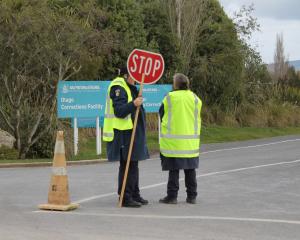Finance Minister Grant Robertson promised he would spend like never before as the Government acted to staunch the economic damage caused by the Covid-19 pandemic and he lived up to that pledge and then some yesterday.
Budget surpluses, practically a given in recent decades for any finance minister, will be a thing of the past for the next few years.
Crown expenses are set to soar and its revenues projected to drop in the short term.
Economic growth, a respectable 2.8% in the year ended June 2019, slams hard into reverse for the year ending June 2020 — down to -4.6% on the back of a predicted 20% drop in GDP for the last quarter of the financial year.
Covid-19’s effect on the economy can be seen everywhere in the fiscal strategy section of the Budget.
Unemployment peaking at 9.8%, a decline in economic activity not seen in peacetime since the Great Depression, a deficit topping $10billion this financial year and getting worse in 2021, Crown revenues dropping by about 5% and Crown expenses up $27billion.
The Budget describes them as our "new short-term fiscal intentions", a more polite way of saying "we’re tearing up the previous plan and starting again from ground zero".
The Government’s net core debt as a ratio of GDP is a case in point.
Hovering just over 10% in recent years, a position maintained by Mr Robertson’s own fiscal responsibility rules, in future years the debt column starts to march off the chart.
By 2024 it could be as high as $200billion, or about 50% of GDP.
Those are figures that will take decades, not years, to reverse.
A return to surplus "remains a long-term objective", as does responsible fiscal policy, but the definition of what a prudent level of debt is would have to change, Mr Robertson said.
However, things could get worse — or better, depending on how you view these things.
Due to the rapid rewriting of the Budget caused by Covid-19, Treasury’s economic forecasts incorporate the impact of only some of the Government’s fiscal support to combat the pandemic disease.
Necessarily, some the financial predictions are guesstimates.
Also, Mr Robertson has carefully not spent all the $50billion Covid-19 response and recovery kitty. If that is all called upon, things will indeed be grim.
"This Budget takes the responsible path of investing to respond, recover and rebuild," he said.
"It takes us down a path where we will face choices as to how we begin to repay some of our debt.
"There will be difficult choices then, as they are difficult choices today.
"This Government will never put the burden of those choices on those who can least afford it."
National leader Simon Bridges said tens of thousands of people were already out of work due to Covid-19 and more would follow, and the Budget had no clear plan for how to deal with that.
"We must not spend more than we need to in poorly prioritised areas.
"After health and education, we need only ask one question with our taxpayer’s money: does it save jobs and create growth?"












